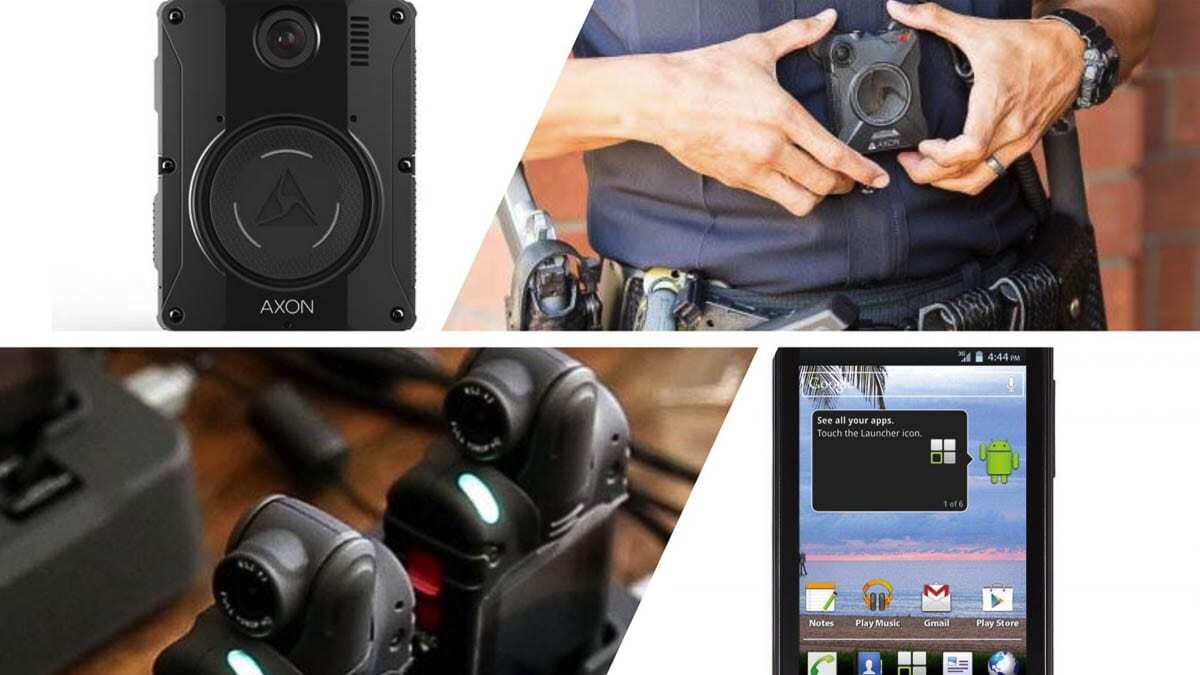The program is currently being worked on by a community task force overseeing implementation of police use-of-force reforms
VANCOUVER — A community task force working to implement a series of recommendations on police use-of-force for the Vancouver Police Department may end up splitting its goals in order to push up the timeline for body-worn cameras.

The 10-member Community Task Force on Policing was formed by City Manager Eric Holmes following a review by the Police Executive Research Forum (PERF), completed in June of last year, which resulted in a list of 84 recommendations.
That review was prompted by a series of officer-involved shootings in early 2019, three of which involved people of color.
In addition to overseeing the implementation of those recommendations, the task force has also focused on the issue of body-worn cameras and dash cameras, something Police Chief James McElvain and Holmes have supported.
In its most recent budget, the city set aside $3 million to help cover the initial cost of the body-worn camera program, but the money will also be needed to fund other elements of the PERF report.
Holmes said he recognizes that the public sees body-worn cameras as perhaps the most visual aspect of local police reform, but the pursuit of them should not throw other reform efforts off track.
“As we look at the overarching objective, which is to reduce the incidence of use-of-force and particularly lethal us-of-force,” said Holmes, “these other elements recommended by the Police Executive Research Forum, may have more significant positive outcomes relative to that ultimate goal than body-worn cameras on their own.”
Councilor Ty Stober agreed, calling the cameras “kind of like building prisons to solve crime. They don’t.”
Stober said he’s not against the use of body-worn cameras, but that “a policy that says we are going to pursue someone over 50 Xanax tablets, whether there’s a body camera there or not, the policy is what created the situation.”
Stober was referring to the shooting of Kevin Peterson Jr. in Hazel Dell last October, which involved members of the Clark County Sheriff’s Office. Another shooting of a black man earlier this month, also by CCSO deputies, prompted Clark County District Attorney Tony Golik, shortly before Monday’s work session, to issue his own call for a quick adoption of body-worn cameras.
Ed Hamilton Rosales, a member of the community task force and president of the Southwest Washington Council for the League of United Lating American Citizens (LULAC), cited that “recent (spate) of killings” as having “escalated that conversation to multiple levels.”
“Somewhere along the line, we’re going to have to bifurcate the program to be able to implement the body cams that everybody — including the chief — wants,” Hamilton Rosales said. “I don’t guarantee that we’re going to have the ability to do both at the same time moving forward.”

Mayor Pro Tem Linda Glover agreed, but said she felt “uncomfortable” adjusting the goals of the task force “because of public pressure.”
“But, the public pressure is very real,” she added, “and I understand it.”
In his comments, Councilor Erik Paulsen said the ongoing delays in implementing the body-worn camera program was “seriously impacting our credibility in the community.”
“I don’t think you can put a price tag on that,” he added, “and I certainly don’t.”
Under the current timeline, Holmes said the city anticipates opening up a request for proposals process in April, with the potential to select a vendor by June.
That could require additional funding, and then a testing period to make sure the equipment is working correctly and officers can be trained in their usage.
“Standing up a fully operational body-worn camera program for Vancouver would most likely, at the earliest, be in the first quarter of 2022,” said Holmes.
The task force will likely discuss the issue at its next meeting on March 3.




